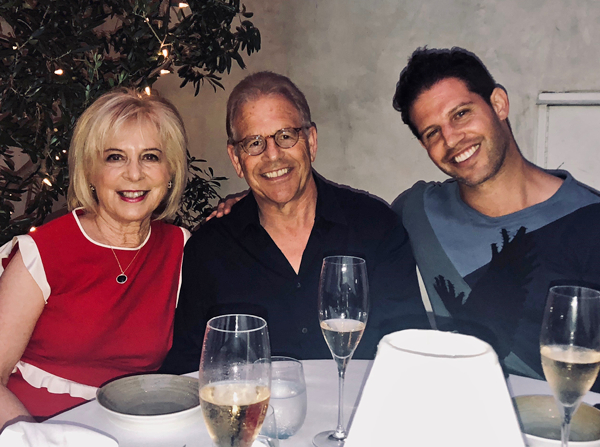
As an entertainment attorney, Don Walerstein relies on his voice nearly as much as his legal acumen. During a trip to New York last November, he suddenly lost that voice. A cold struck, followed quickly by symptoms of laryngitis. The cold went away; the voice loss did not. His physician put him in touch with two ear, nose and throat specialists.
The first noticed a nodule on Walerstein’s thyroid and suggested that was the cause, recommending removal of the thyroid followed by hormone therapy. The patient, however, was skeptical. “That nodule’s been there for at least a decade, and it’s never been a problem,” he told the doctor. It had been biopsied numerous times and had always been benign.
When the second expert recommended the same approach, Walerstein sought a third specialist — “supposedly the preeminent doctor in the field.” The advice, however, was the same.
Unable to converse, he was forced to depend on his wife, Susan, and son Matthew, a fellow lawyer, to interpret whispers and hastily scrawled messages during phone calls with clients. “I spend most of my time on the phone negotiating contracts,” Walerstein says. “Not being able to talk would soon put me out of business.”
So he conducted his own research and discovered the USC Caruso Department of Otolaryngology — Head and Neck Surgery’s Voice Center and its director Michael M. Johns, MD, professor of Clinical Otolaryngology. “He performed the same tests that every other specialist had,” Walerstein recalls — but Johns’ analysis and demeanor differed radically.
Johns and colleague Edie Hapner, PhD — professor of Clinical Otolaryngology and director of Speech Pathology at the Voice Center — diagnosed the culprit as a virus similar to Bell’s palsy. Instead of weakening facial muscles, it had paralyzed Walerstein’s vocal cords.
“Dr. Johns told me not to worry about a thing, and that they would give me a collagen shot to get my voice back on an interim basis,” Walerstein says. “None of the other doctors even suggested that.”
Johns said the shot might only provide a temporary solution, but reassuringly added that he had a permanent fix if needed — a small disc could be inserted into Walerstein’s vocal cord as an outpatient procedure. Johns and Hapner offered other immediate relief — even as the latter was leaving for a long-deserved vacation. “As Edie was heading to the airport, she called to find out how I was doing and recommended various exercises to help my voice return fully. She also emailed a whole program that showed me how to do them.”
Following the collagen injection, Walerstein’s voice almost immediately returned. No further treatment proved necessary.
According to Walerstein, “Dr. Johns’ ‘temporary’ solution was years ahead of what the other experts wanted me to do — and certainly less frightening. When I told him that others had recommended removal of my thyroid, he said, ‘If you had had the thyroid operation, and they had accidentally touched your other vocal cord, you could have lost your voice permanently.’”
None of the other specialists had mentioned the potential drawbacks of the thyroid surgery, including the challenges of finding the right hormone balance.
Now that his voice is back, Walerstein wants to help spread the word about the USC Caruso Department and USC Voice Center through his generous philanthropic support which will benefit the program, and by sharing his story. “I feel very fortunate that I even found the program, which is why I wanted to contribute,” he says.
He considers the department’s level of care a hidden gem that needs to be out in the open. “I was treated so extraordinarily well by Dr. Johns and his team,” Walerstein says. “It’s been unlike any other medical experience I’ve had — and I’ve had a lot of them. It’s been terrific.”
To make a gift to the Caruso Department of Otolaryngology – Head and Neck Surgery, click here.